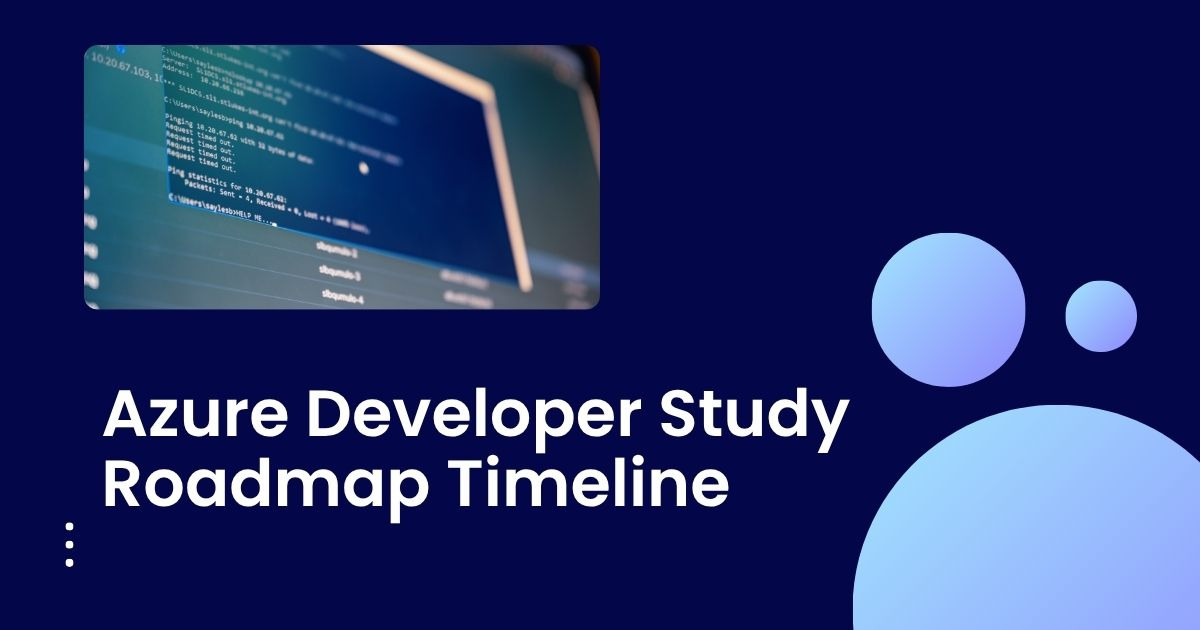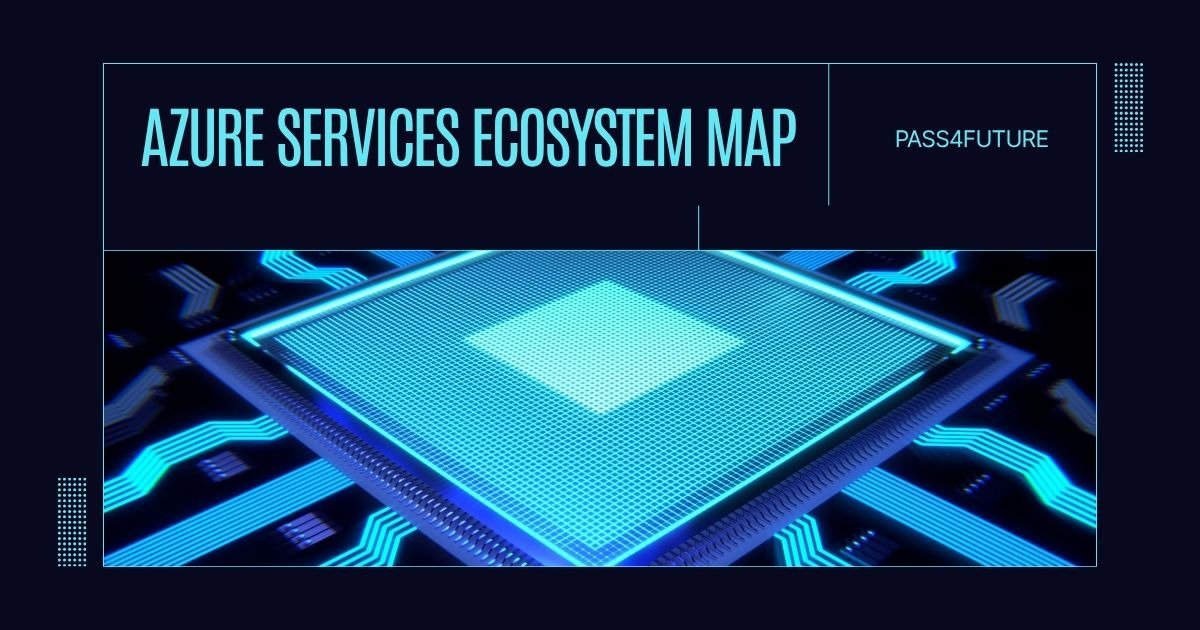The Microsoft Azure Developer Associate certification, specifically the AZ-204 exam, has become a cornerstone credential for developers working with cloud technologies. As businesses accelerate their cloud adoption, the need for qualified Azure developers who can design, build, test, and maintain cloud applications continues to surge. Whether you're starting your cloud journey or looking to validate your existing skills, understanding what this certification entails and how to prepare effectively can make all the difference in your career trajectory.
Why This Certification Matters in Today's Tech Landscape
Cloud computing has transformed from a nice-to-have skill into an essential requirement for modern developers. The Azure Developer Associate certification demonstrates your proficiency in developing solutions that leverage Azure's vast ecosystem of services. This certification proves you can implement Azure compute solutions, develop for Azure storage, implement Azure security, monitor and optimize solutions, and connect to and consume Azure services and third-party services.
Employers recognize this certification as evidence of practical, hands-on expertise rather than just theoretical knowledge. It shows you understand not only how to code but also how to architect solutions that are scalable, secure, and cost-effective in a cloud environment. The certification opens doors to roles such as cloud application developer, Azure solutions architect, DevOps engineer, and full-stack developer with cloud specialization.
Core Competencies Tested in the Exam

The exam evaluates your knowledge across several critical domains, each representing essential skills for Azure developers. Understanding these areas thoroughly is crucial for both passing the exam and excelling in real-world scenarios.
Azure Compute Solutions Implementation
This domain covers your ability to implement Infrastructure as a Service solutions, create Azure App Service web apps, and implement Azure Functions. You'll need to demonstrate proficiency in provisioning virtual machines, configuring containers, and creating containerized solutions. Understanding when to use different compute options based on specific requirements is essential. You should be comfortable with Azure Container Instances, Azure Kubernetes Service, and how to optimize compute resources for performance and cost.
Azure Storage Development
Working with Azure storage is fundamental to building cloud applications. You'll need expertise in developing solutions that use Cosmos DB storage, blob storage, Azure SQL databases, and Azure Tables. Understanding the differences between these storage options, when to use each one, and how to implement them efficiently is critical. You should also know how to work with storage security, implement data retention policies, and optimize storage performance.
Security Implementation
Security in cloud applications isn't optional; it's paramount. The exam tests your ability to implement user authentication and authorization, secure cloud solutions, and implement secure data solutions. You need to understand Azure Active Directory, managed identities, Azure Key Vault, and how to implement proper access controls. Knowledge of OAuth 2.0, OpenID Connect, and certificate-based authentication is also essential.
Monitoring and Optimization
Once applications are deployed, monitoring their performance and optimizing their operation becomes crucial. You should understand how to integrate caching and content delivery within solutions, instrument solutions to support monitoring and logging, and implement Application Insights. This includes understanding how to set up alerts, analyze application performance, and troubleshoot issues in production environments.
Service Integration and API Development

Modern applications rarely exist in isolation. You'll need to demonstrate your ability to develop App Service Logic Apps, implement API Management, develop event-based solutions, and develop message-based solutions. Understanding Event Grid, Event Hubs, Service Bus, and Queue Storage is essential for building responsive, scalable applications.
Building a Solid Foundation Through Hands-On Practice
Reading documentation and watching videos will only take you so far. The most effective way to prepare is through consistent, hands-on practice in the Azure portal. Microsoft offers a free tier for Azure that allows you to experiment with many services without incurring costs. Take advantage of this to build actual projects that implement the concepts covered in the exam.
Start with simple projects and gradually increase complexity. For example, begin by deploying a basic web application to Azure App Service, then add database connectivity, implement authentication, integrate Azure Functions for background processing, and finally add monitoring and logging. This progressive approach helps you understand how different Azure services work together and builds the practical intuition you'll need during the exam.
Create a development environment that mirrors what you'll encounter in professional settings. Use Visual Studio or Visual Studio Code with Azure extensions, become familiar with Azure CLI and PowerShell commands, and practice deploying resources using ARM templates or Bicep. Understanding infrastructure as code is increasingly important and will serve you well beyond the certification.
Strategic Study Approaches That Actually Work
Effective preparation requires more than just covering all topics; it demands a strategic approach that optimizes your learning and retention.
Focus on Understanding, Not Memorization
Many candidates make the mistake of trying to memorize facts and configuration options. While some memorization is inevitable, focus instead on understanding the underlying concepts and principles. When you understand why something works the way it does, you can reason through unfamiliar scenarios even if you haven't seen that exact question before.
For instance, rather than memorizing all the SKU options for every service, understand the factors that differentiate SKUs (performance, scalability, features, cost) and how to evaluate which option suits specific requirements. This conceptual understanding proves far more valuable than rote memorization.
Utilize Official Microsoft Learning Resources
Microsoft provides extensive free documentation, learning paths, and modules specifically designed for the AZ-204 exam. The official Microsoft Learn platform offers structured learning paths with hands-on exercises in sandbox environments. These resources are regularly updated to reflect the current exam content and Azure service updates.
The official exam skills outline is your blueprint; review it regularly to ensure you're covering all required topics at the appropriate depth. Microsoft also provides sample questions and practice assessments that give you a feel for the question format and difficulty level.
Practice Time Management
The exam gives you a limited time to answer numerous questions, many of which include case studies or scenarios requiring careful analysis. Practice answering questions under timed conditions to build your pace. Learn to quickly identify what each question is really asking and eliminate obviously incorrect options.
During your practice sessions, note which topics take you longer to answer and focus additional study time on those areas. Remember that some questions may present multiple valid solutions, but you're looking for the best answer according to Azure best practices and Microsoft's recommendations.
Join Developer Communities
Learning from others who are on the same journey can be incredibly valuable. Online communities, forums, and study groups provide opportunities to discuss challenging concepts, share resources, and learn from others' experiences. LinkedIn groups, Reddit communities, and Microsoft Tech Community forums are excellent places to connect with fellow learners and experienced Azure developers.
Don't hesitate to ask questions when you're stuck, and contribute by helping others when you can. Teaching concepts to others is one of the most effective ways to solidify your own understanding.
Common Preparation Mistakes to Avoid
Understanding what not to do is just as important as knowing what to do. Many candidates waste time and effort on ineffective strategies that ultimately hurt their chances of success.
Avoid relying solely on passive learning methods like reading or watching videos. These have their place, but they must be supplemented with active practice. Don't skip the hands-on labs and exercises; they're where real learning happens.
Don't neglect any exam domain, even if you feel confident in certain areas. The exam covers a broad range of topics, and weak spots will be exposed. Ensure you have at least foundational knowledge across all tested competencies.
Avoid studying outdated materials. Azure services evolve rapidly, with new features and changes introduced regularly. Always verify that your study resources are current and align with the latest exam objectives.
Exam Day Success Strategies
When exam day arrives, having the right approach can make a significant difference in your performance. Get adequate rest the night before; tired minds make careless mistakes. Arrive early (or log in early for online exams) to settle any technical or logistical issues without stress.
Read each question carefully, paying attention to keywords like "most cost-effective," "least administrative effort," or "most secure." These qualifiers often point toward the correct answer. If a question includes a scenario or case study, make notes about the key requirements and constraints mentioned.
Use the marking feature to flag questions you're unsure about and return to them after completing the ones you know. Sometimes, information in later questions can provide clues to earlier ones. Don't overthink questions; your first instinct is often correct unless you find a clear reason to change your answer.
Life After Certification
Passing the exam is an important milestone, but it's just the beginning of your journey as an Azure developer. The certification validates your current knowledge, but staying relevant requires continuous learning. Azure introduces new services and updates existing ones constantly, so make it a habit to stay informed about platform changes.
Consider pursuing advanced certifications like the Azure Solutions Architect Expert or Azure DevOps Engineer Expert to further specialize and advance your career. These build upon the foundational knowledge you've gained and open up even more career opportunities.
Apply your knowledge in real projects whenever possible. The true value of certification comes from using what you've learned to solve actual business problems. Look for opportunities in your current role to implement Azure solutions, or consider contributing to open-source projects that use Azure services.
Your Path to Azure Developer Success
Preparing for the Developing Solutions for Microsoft Azure exam requires dedication, strategic planning, and consistent practice. By focusing on hands-on experience, understanding core concepts deeply, and using quality study resources, you'll be well-positioned not just to pass the exam but to excel as an Azure developer in your career.
Remember that this certification is an investment in your professional future. The skills you develop during preparation cloud architecture, security implementation, performance optimization, and service integration, are exactly what employers seek in modern developers. Whether you're aiming to advance in your current role or transition into cloud development, this certification provides the credibility and knowledge foundation you need.
Start your preparation today with a clear plan, stay consistent in your efforts, and don't hesitate to seek help when needed. Thousands of developers have successfully earned this certification, and with the right approach, you can join their ranks. For additional support and resources to help you succeed in the Developing Solutions for Microsoft Azure exam, Pass4Future offers comprehensive materials designed to complement your study journey. Your path to becoming a certified Azure developer starts now, and the opportunities that await are worth every effort you invest in preparation.

